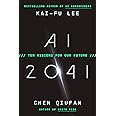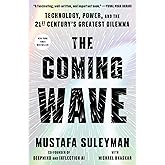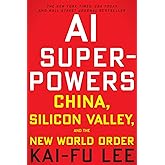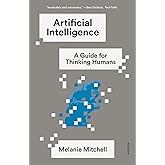
Enjoy fast, free delivery, exclusive deals, and award-winning movies & TV shows with Prime
Try Prime
and start saving today with fast, free delivery
Amazon Prime includes:
Fast, FREE Delivery is available to Prime members. To join, select "Try Amazon Prime and start saving today with Fast, FREE Delivery" below the Add to Cart button.
Amazon Prime members enjoy:- Cardmembers earn 5% Back at Amazon.com with a Prime Credit Card.
- Unlimited Free Two-Day Delivery
- Streaming of thousands of movies and TV shows with limited ads on Prime Video.
- A Kindle book to borrow for free each month - with no due dates
- Listen to over 2 million songs and hundreds of playlists
- Unlimited photo storage with anywhere access
Important: Your credit card will NOT be charged when you start your free trial or if you cancel during the trial period. If you're happy with Amazon Prime, do nothing. At the end of the free trial, your membership will automatically upgrade to a monthly membership.
Buy new:
-60% $12.00$12.00
Ships from: Amazon.com Sold by: Amazon.com
Save with Used - Very Good
$11.00$11.00
Ships from: Amazon Sold by: ShopMyPomme

Download the free Kindle app and start reading Kindle books instantly on your smartphone, tablet, or computer - no Kindle device required.
Read instantly on your browser with Kindle for Web.
Using your mobile phone camera - scan the code below and download the Kindle app.

OK
 Audible sample Sample
Audible sample Sample 


The Age of AI: And Our Human Future Hardcover – November 2, 2021
Purchase options and add-ons
Three of the world’s most accomplished and deep thinkers come together to explore Artificial Intelligence (AI) and the way it is transforming human society—and what this technology means for us all.
Generative AI is filling the internet with false information. Artists, writers, and many other professionals are in fear of their jobs. AI is discovering new medicines, running military drones, and transforming the world around us—yet we do not understand the decisions it makes, and we don’t know how to control them.
In The Age of AI, three leading thinkers have come together to consider how AI will change our relationships with knowledge, politics, and the societies in which we live. The Age of AI is an essential roadmap to our present and our future, an era unlike any that has come before.
- Print length272 pages
- LanguageEnglish
- PublisherLittle, Brown and Company
- Publication dateNovember 2, 2021
- Dimensions6.35 x 1.25 x 9.55 inches
- ISBN-100316273805
- ISBN-13978-0316273800
The Amazon Book Review
Book recommendations, author interviews, editors' picks, and more. Read it now
Frequently bought together

Similar items that may ship from close to you
 When information is contextualized, it becomes knowledge. When knowledge compels convictions, it becomes wisdom.Highlighted by 1,137 Kindle readers
When information is contextualized, it becomes knowledge. When knowledge compels convictions, it becomes wisdom.Highlighted by 1,137 Kindle readers The digital world has little patience for wisdom; its values are shaped by approbation, not introspection.Highlighted by 799 Kindle readers
The digital world has little patience for wisdom; its values are shaped by approbation, not introspection.Highlighted by 799 Kindle readers As of this writing, three forms of machine learning are noteworthy: supervised learning, unsupervised learning, and reinforcement learning.Highlighted by 715 Kindle readers
As of this writing, three forms of machine learning are noteworthy: supervised learning, unsupervised learning, and reinforcement learning.Highlighted by 715 Kindle readers
From the Publisher

|
|
|
|
|---|---|---|
|
|
|
|

Editorial Reviews
About the Author
Eric Schmidt is an accomplished technologist, entrepreneur and philanthropist. As Google’s Chief Executive Officer, he pioneered Google’s transformation from a Silicon Valley startup to a global leader in technology. He served as Google’s Chief Executive Officer and Chairman from 2001-2011, Executive Chairman from 2011-2018 and most recently as Technical Advisor from 2018-2020. Under his leadership Google dramatically scaled its infrastructure and diversified its product offerings while maintaining a strong culture of innovation. Prior to his career at Google, Eric held leadership roles at Novell and Sun Microsystems, Inc.
Daniel Huttenlocher is the inaugural dean of the MIT Schwarzman College of Computing. Previously he served as founding Dean and Vice Provost of Cornell Tech, the digital technology oriented graduate school created by Cornell University in New York City. He has a mix of academic and industry experience, as a Computer Science faculty member at Cornell and MIT, researcher and manager at the Xerox Palo Alto Research Center (PARC), and CTO of a fintech startup. He currently serves as chair of the John D. and Catherine T. MacArthur Foundation board and as a member of the Corning Inc. and Amazon.com boards.
Product details
- Publisher : Little, Brown and Company; First Edition (November 2, 2021)
- Language : English
- Hardcover : 272 pages
- ISBN-10 : 0316273805
- ISBN-13 : 978-0316273800
- Item Weight : 1.04 pounds
- Dimensions : 6.35 x 1.25 x 9.55 inches
- Best Sellers Rank: #10,130 in Books (See Top 100 in Books)
- Customer Reviews:
About the authors

Eric Schmidt is a technologist, entrepreneur, and philanthropist. He joined Google in 2001, helping the company grow from a Silicon Valley startup to a global technological leader. He served as chief executive officer and chairman from 2001 to 2011, and as executive chairman and technical advisor thereafter. Under his leadership, Google dramatically scaled its infrastructure and diversified its product offerings while maintaining a culture of innovation. In 2017, he co-founded Schmidt Futures, a philanthropic initiative that bets early on exceptional people making the world better. He serves as chair of The Broad Institute, and formerly served as chair of the National Security Commission on Artificial Intelligence. He is the host of Reimagine with Eric Schmidt, a podcast exploring how society can build a brighter future after the COVID-19 pandemic.

Henry Kissinger served in the US Army during the Second World War and subsequently held teaching posts in history and government at Harvard University for twenty years. He served as national security advisor and secretary of state under Richard Nixon and Gerald Ford, and has advised many other American presidents on foreign policy. He received the 1973 Nobel Peace Prize, the Presidential Medal of Freedom, and the Medal of Liberty, among other awards. He is the author of numerous books and articles on foreign policy and diplomacy, including most recently On China and World Order. He is currently chairman of Kissinger Associates, Inc., an international consulting firm.
Customer reviews
Customer Reviews, including Product Star Ratings help customers to learn more about the product and decide whether it is the right product for them.
To calculate the overall star rating and percentage breakdown by star, we don’t use a simple average. Instead, our system considers things like how recent a review is and if the reviewer bought the item on Amazon. It also analyzed reviews to verify trustworthiness.
Learn more how customers reviews work on AmazonReviews with images
-
Top reviews
Top reviews from the United States
There was a problem filtering reviews right now. Please try again later.
It is everything, and more.
As of writing, GPT-4 is the rave in artificial intelligence (AI). But the world has already had intimations of AI's power through its predecessors, particularly ChatGPT. In a deluge of information, it is necessary to have a voice of authority and wisdom to explain the phenomenon we face. This book fits the bill as a pamphlet that conceptually explains what AI is, without the technicalities that may baffle non-technical readers. (I have enjoyed an interview between one of the authors, Eric Schmidt and Alexandr Wang, on the subject, which inspired my purchase of the book).
As a compendium, the book catalogues the development in computing and situates modern AI as the culmination of years of progress. It posits that we have created a thing with processing power that outstrips human cognition and can capture aspects of reality beyond human detection. AI can now beat us, quite literally, at our own game, as seen in chess, where an AI trained on the rules of the game augments itself to make independent and more compelling moves beyond human comprehension. Similarly, AI can discover new antibiotics in record time by merely being exposed to fundamental principles. Chess and medical breakthroughs are frequent references in the book, demonstrating the extent to which AI would affect domains once reserved for humans.
Chapter 2 is particularly delightful, with sentences brimming with such verve that one wishes it never ends. It explores centuries of sociocultural and sociopolitical forces that paved the way for AI and pranced through the evolution of human ingenuity, reason, and intellect. The chapter posits that AI's ability to upend every aspect of society surpasses the revolutions wrought by the printing press and electricity. These earlier technologies not only introduced new forms; they disrupted every aspect of society. The printing press bestowed new roles on the Western individual by wresting powers away from the Church and equipping the individual - facilitated by the Protestant agitations - with scholarly access to the divine. This psychological shift in the Western mind - sufficiently explored in Joseph Henrich's work, The Weirdest People in the World - launched the Renaissance, ushering in flourishing in arts, architecture, literature, and civic participation, ensuring the greatness of Michelangelo, Leonardo da Vinci, and others. The authors contend that AI is destined to follow a similar trajectory.
The philosophical underpinnings of AI are captivating. The authors, probing AI's capture of reality, align it with Wittgenstein's view of making meaning through familiar connections rather than reducing reality to mechanistic explanations. Hence, the neural networks that inspire AI in mimicking the structure of the human brain place it far from mere computations of cause and effect, or garbage in, garbage out.
“To enable machine learning, what mattered was the overlap between various representations of a thing, not its ideal — in philosophical terms, Wittgenstein, not Plato. The modern field of machine learning — of programs that learn through experience — was born.”
Still, on philosophy, the book wonders if we are equipped to deal with our new fate. If AI can capture reality outside human conception, how do we retain our identity when perceptions would be determined by something beyond us? The authors concede that civilisation has been primarily created and sustained through the dynamics of Faith and Reason, and AI is designing a new form. It is a difficult notion to digest, since phenomena that thinkers and philosophers have grappled with, e.g., consciousness, divinity, nature/nurture, would become more challenging to comprehend.
There is a lot of caution in the book. The authors warn that where nuclear weapon is the most dreadful of human arsenals, AI surpasses it by an order of magnitude. This apocalyptic view is further compounded by the difficulty of designing effective verification systems for a rather inscrutable technology. It is to wonder what we have gotten ourselves into. Human ingenuity has birthed a hybrid of saint and devil. Where nuclear weapon is under international regulations in which nations with nuclear capabilities are under the watchful eyes of post-WWII and post-Soviet accords, how do we police something so insanely hard to detect, easily distributed, and accessible? Nuclear deterrence has so far saved us from annihilation. How do we protect ourselves from something that possesses the capacity to "transform conventional, nuclear, and cyber weapons strategy"? This makes the book an entreaty, inviting governments, policy wonks, and military thinkers to convene and hash out red lines that would ensure responsible applications.
For me, the positives outweigh the negatives if regulations are in place. And we must be careful to avoid stifling innovation under the guise of potential misuse. Moreover, as AI accelerates prosperity and instigates breakthroughs, how will it impact the global south? Will it leave a section of humanity behind while perpetuating historical patterns of economic inequities, a fact that Emad Mostaque of Stability AI has been vocal about? The book hints at it, but it would take a separate publication to articulate this concern.
Overall, it is a delightful book written by those who should write about AI and society.
The first concrete example is a program that plays chess at the highest level possible. This program isn't the one you heard about years ago that finally was able to consistently beat chess grandmasters. Though that was a milestone, it wasn't an epoch-making one. This AI program beat the most powerful chess-winning programs, and not by just a little. The victories were complete blowouts. What's more, the chess experts who analyzed the program's moves were at a loss to figure out how it won. This book explains how this computer was trained to play chess differently.
A second contrete example is a program that discovered a new drug, Halicin, that can be used to treat patients infected with one of several bacteria strains that resist treatment with other anti-bacteria drugs. Without this AI program. the cost would have been way too high. There was only one molecule that had the unique properties necessary to be effective.
Still another example was an AI-style program that Google used to find how to cut its cooling costs for its ultra-powerful servers that it uses. Expert engineers had already improved energy-efficiency to the best of their ability. AI found ways to cut Google's another 40%.
The chess AI doesn't affect many ordinary people. The Halicin AI also will affect a relatively few, albeit with life-saving potential. But a cost-saving AI would benefit a much greater proportion of the general population.
However, its benefits are only half the story of AI. Risks are also present – risks so dire that they threaten to scuttle AI's rise to prominence. Indeed, the book's main thrust is how we might control the risks so that we can harvest AI's benefits as fully and safely as possible. A lot of thorny problems remain to be solved – which the book describes – before that can happen.
The book isn't perfect. It has three authors. This seems to have resulted, at times, in more repetition than necessary, though at other times it gives greater perspective on various aspects of AI. The book has a heavy overlay of philosophical musings about how AI has given glipses into a here-before hidden nature of reality. I found some of these philosophical discussions hard to grasp, especially those that reference Immanual Kant whose writings always seem to be unable to penetrate through my incomprehension.
Quite a bit of the book seems written for policy managers in business, government and universities, but there is enough directed at a general audience, including myself, to attract our attention. I'm glad of this because general audiences have a huge influence on policies by virtue of our election choices, our purchase choices, our school attendances, and our classroom interactions. All of these will shape the world going forward.
(This review is of the Kindle 2021 edition which has an afterword that covers new developments into 2022.)

















